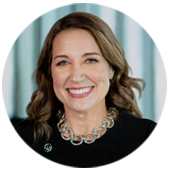CPA licensure: Mobility and substantial equivalency
Broadening pathways to CPA licensure
 "As one of the largest firms in Minnesota, CLA applauds Minnesota for being an advocate for collaboration and change and taking the necessary steps to address the inadequacies in the current system. We are well aware of the mobility challenges that are ahead, and we believe that through the power of collaboration across key stakeholders we can work together to design a path forward."
"As one of the largest firms in Minnesota, CLA applauds Minnesota for being an advocate for collaboration and change and taking the necessary steps to address the inadequacies in the current system. We are well aware of the mobility challenges that are ahead, and we believe that through the power of collaboration across key stakeholders we can work together to design a path forward."
— Jen Leary, CPA, CEO at CliftonLarsonAllen LLP
View automatic mobility progress map
Visit the pathways tracking page to see a map of licensure legislation through the U.S.
Mobility, sometimes called practice privileges, is the ability for a CPA to practice in a state which is not their principal place of business under a license issued by another state. Mobility is based on the fact that the rules governing CPA licensure are similar in all states.
There are two methods that are currently used to determine practice privileges at the state level.
The substantial equivalency method
The most common method is that state’s board of accountancy or its delegate determines which states are substantially equivalent. Some states delegate this determination to the National Qualifications Advisory Service (NQAS), which is a service provided the National Association of the State Boards of Accountancy (NASBA). In this case, substantial equivalency is assigned at a state level. This is important because if a state makes a change and NQAS determines that the state is no longer substantially equivalent, all CPAs licensed by that state no longer have mobility even if they were licensed under rules that are substantially equivalent.
This structure of mobility is a significant barrier for adapting licensing rules to changes in the accounting profession or the systems that support the profession, e.g., education, technology, business needs. Mobility, a valuable structure for CPAs and clients, is vulnerable to changes under this model.
The automatic mobility model
A second model exists called automatic mobility. Currently five states — Alabama, Nebraska, North Carolina, Ohio and Nevada — function under this model. A CPA with a certificate in good standing issued by another state is recognized and allowed practice privileges in these five states. Automatic mobility shifts substantial equivalency from the state level to the individual level.
In both mobility models, a CPA falls under the jurisdiction of their respective state’s BOA. Public protection is not diminished under automatic mobility. In a state with automatic mobility, a CPA licensed by a state that subsequently makes licensure changes will not lose practice privileges. Mobility is less vulnerable under this model.
Where are we in this conversation?
A clear shift is happening in licensing jurisdictions to broaden the pathways to CPA licensure and allow a bachelor’s degree plus two years of experience or a master’s degree with one year of experience. In some states, the option of 150 hours plus one year of experience will also remain. For those states operating under substantial equivalency, there is a risk when the bachelor’s degree option is implemented that all CPAs in the states making this shift will not have mobility in all states.
Given the trend to broaden the pathways to licensure, approximately half of the jurisdictions have indicated they are shifting to automatic mobility to ensure that CPAs from all states will have practice privileges and be under the jurisdiction of the states BOA. Many states are still waiting to weigh in.
What is Minnesota doing?
Minnesota’s proposed licensure bill adds automatic mobility to the accountancy statute. As the profession works to broaden the pathways to licensure, we are also building a stronger foundation for mobility that will allow the profession the ability to adapt to changing environments, maintain mobility and ensure the public is protected.
As states broaden the pathways to licensure, the MNCPA will provide updates regarding practice privileges in other states. This will evolve in the coming years as the legislation process is not known for its expediency and there are many factors that can delay passing a bill in specific states.
Moving to Automatic Mobility (Legislation or BOA Rule Changes)
 |
Seeking change in 2025 |
 |
Publicly supported |
 |
Expected to pursue in the future |
 |
Already has/law signed in 2025 with future implementation date |

This map is regularly updated to track progress in all United States jurisdictions. Please email Corey Butler at
cbutler@mncpa.org with any updates.
Learn more about this CPA pathway initiative
Keep up with the evolving conversation by visiting the MNCPA's webpage about the broadening pathways to CPA licensure initiative.
VISIT CPA PATHWAYS PAGE
